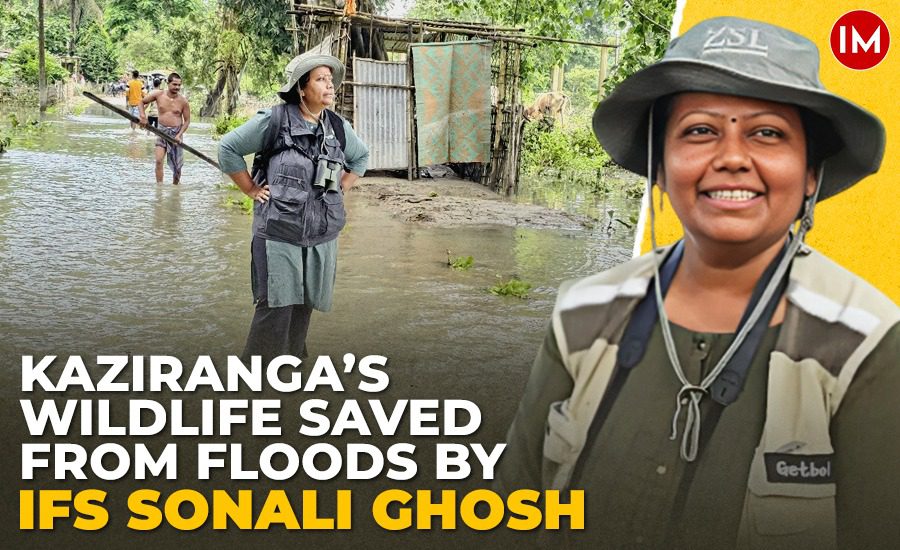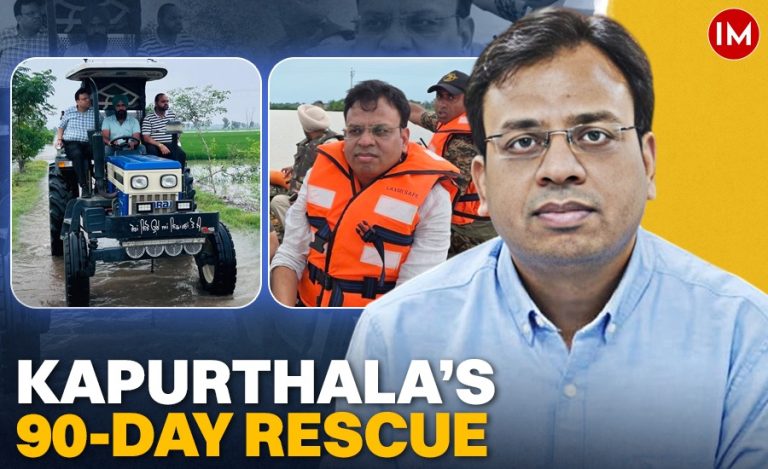On September 11, 2025, the Eco Warrior Awards celebrated India’s finest environmental champions. Among the night’s most inspiring moments was the announcement of Dr. Sonali Ghosh as the winner of the Eco Warrior Award for Wildlife Conservation 2025. An Indian Forest Service officer of the 2000 batch and the Field Director of Kaziranga National Park & Tiger Reserve, Dr. Ghosh was recognized for extraordinary work that combined science, technology, and people’s participation to protect one of the planet’s richest biodiversity hotspots.
LEADING KAZIRANGA THROUGH THE 2024 FLOODS
In the summer of 2024, Assam faced devastating floods that submerged large parts of Kaziranga National Park, threatening its famed one-horned rhinoceros, elephants, swamp deer, and countless other species. As waters surged, Dr. Ghosh moved into action.
- Rescue and Shelter: She organized specialized rescue teams and converted anti-poaching camps into emergency shelters.
- Safe Passage: By coordinating with civil agencies, she secured higher ground and created temporary animal corridors so wildlife could move safely out of submerged zones.
Her swift measures saved hundreds of animals, turning a disaster into a remarkable example of proactive conservation.
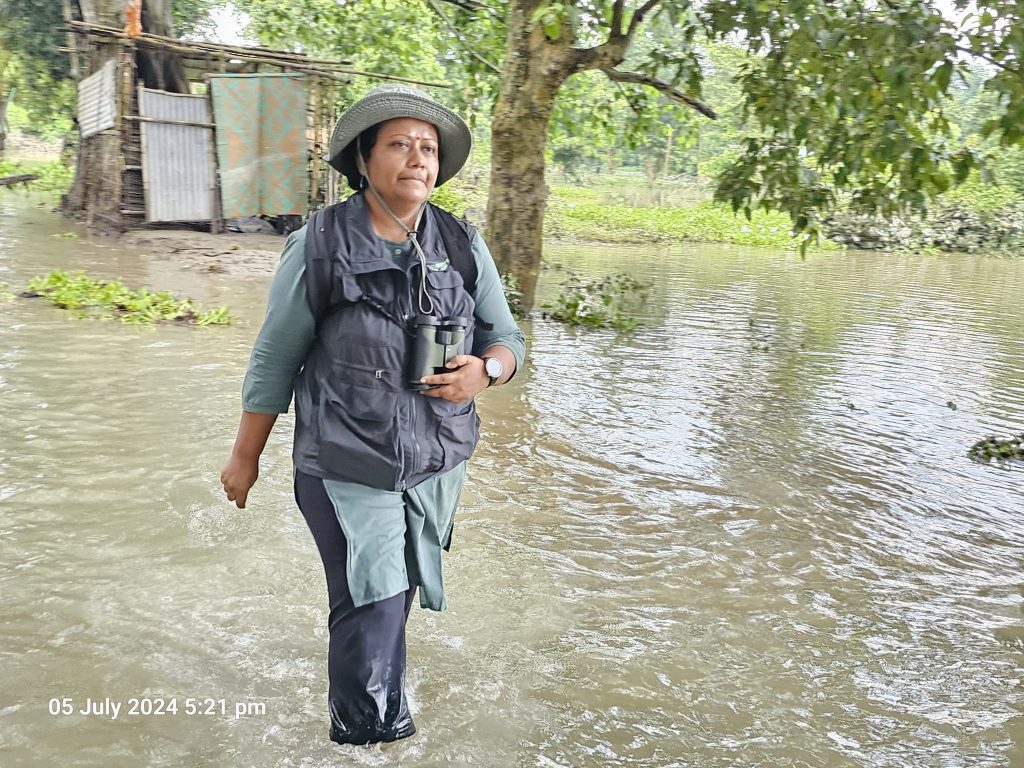
ENDING THE POACHING THREAT
Kaziranga’s rhinos had long been hunted for their horns, but under Dr. Ghosh’s watch poaching dropped to zero. She introduced a multi-layered security system:
- Modern Surveillance: Drone monitoring, camera traps, and real-time tracking through M-STrIPES.
- Ground Patrols: Strengthened anti-poaching teams and trained them with the latest technology.
- Community Guardians: Engaged local villagers, encouraging them to report suspicious activity and become protectors of the park.
This integrated approach restored faith among staff and nearby communities, creating a protective shield around Kaziranga’s wildlife.
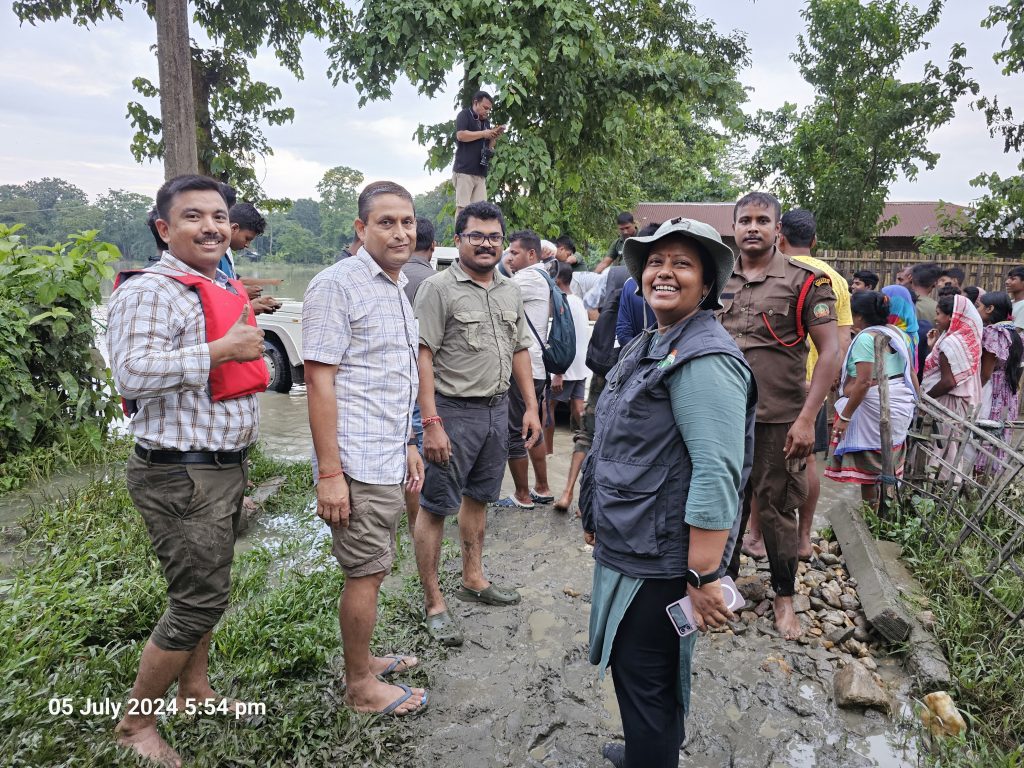
EXPANDING AND STRENGTHENING THE PARK
Dr. Ghosh recognized that conservation thrives when habitats are connected and when the people protecting them are fully supported. She focused on empowering Kaziranga’s workforce of more than 1,500 staff, improving their training programs and introducing better welfare measures to keep morale high. The park’s 200 anti-poaching camps were reinforced with modern equipment and resources, strengthening the frontline teams that guard the reserve day and night.
Under her leadership, Kaziranga itself grew to nearly 1,300 square kilometers. New zones such as Burhachapori and Laokhowa were added, creating vital pathways for elephants, wild buffalo, swamp deer, and tigers to move freely between habitats. This careful expansion not only improved daily protection but also ensured genetic diversity and long-term survival for multiple species that depend on these connected landscapes.
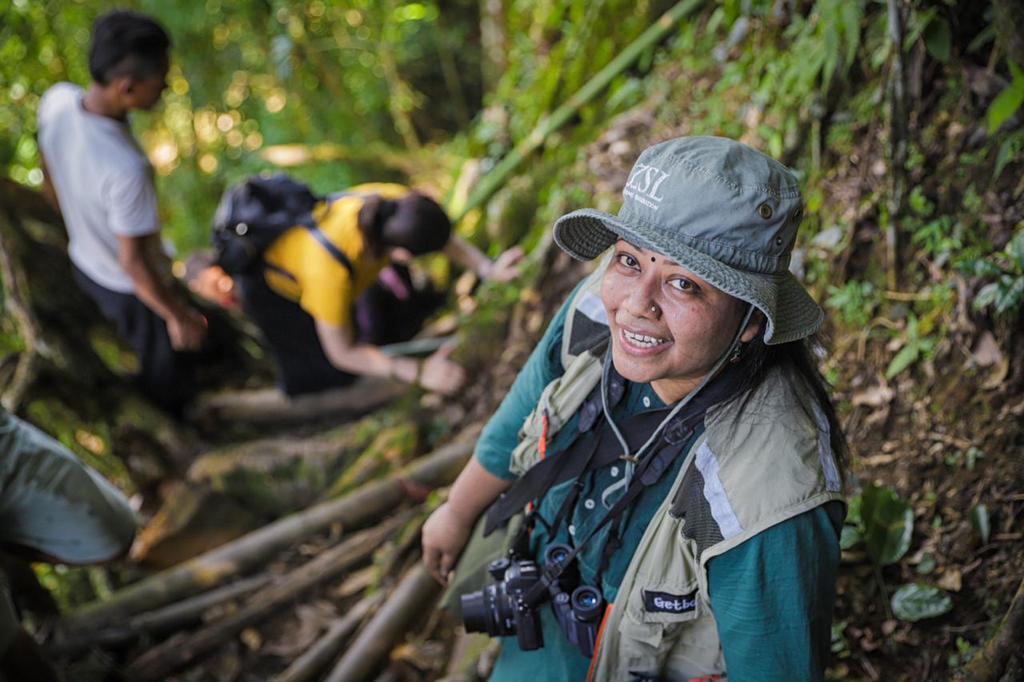
HARNESSING TECHNOLOGY FOR WILDLIFE PROTECTION
Floods, lightning, and human–wildlife conflicts continue to test Kaziranga every year, but Dr. Ghosh has countered these challenges with a wave of innovation. She introduced drone surveillance to keep a watchful eye on flood-hit areas and to track the movement of animals in real time, allowing teams to respond before danger escalates.
Camera traps and the advanced M-STrIPES monitoring system now provide round-the-clock updates on wildlife activity, giving rangers precise data for quick decision-making. Elevated refuges and carefully maintained wildlife corridors help animals find safe routes during natural calamities, reducing panic-driven movement into human settlements. To ensure swift action when crises strike, Dr. Ghosh also set up rapid-response teams that can mobilize immediately, minimizing wildlife losses and protecting both animals and people.
Community awareness campaigns complemented these efforts, helping people coexist with the park’s animals.
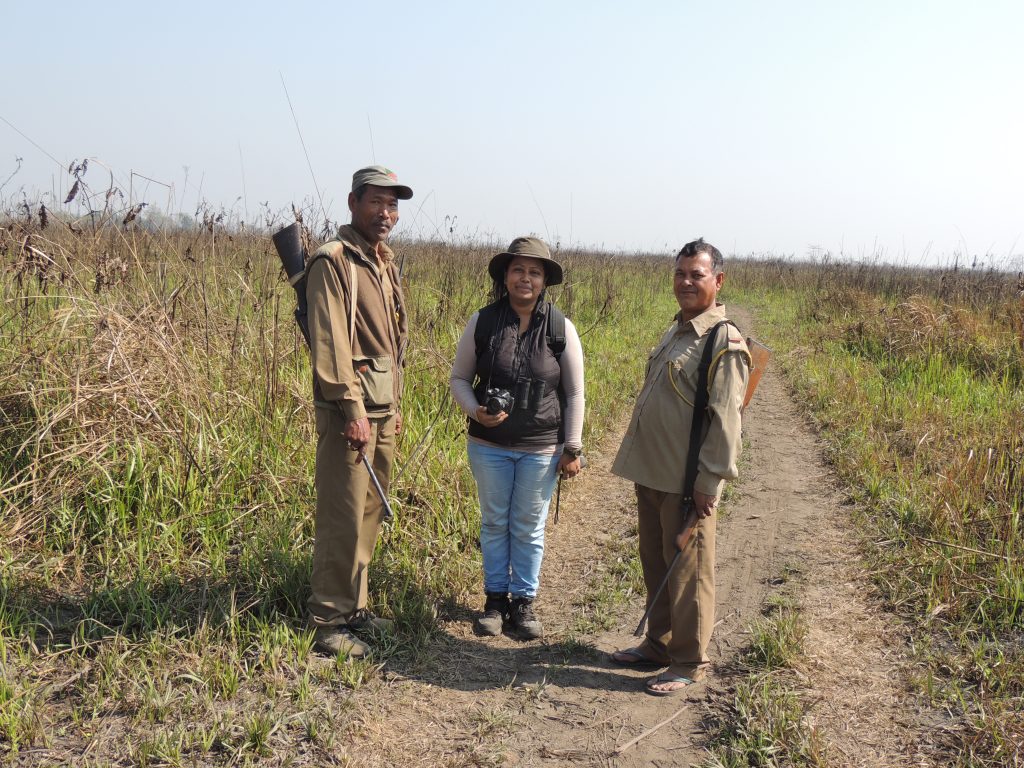
REDEFINING ECO-TOURISM
Dr. Ghosh has also transformed Kaziranga into a hub for education and sustainable tourism, giving visitors and local communities new ways to connect with nature. She introduced fresh experiences such as cycling trails, boating routes, birding circuits, and electric safaris in the park’s buffer zones, all designed to showcase wildlife without disturbing fragile habitats.
To nurture a love for conservation among younger generations, she launched butterfly and orchid trails that highlight the park’s delicate ecosystems. Alongside these, hands-on workshops for schoolchildren bring classroom lessons to life, inspiring curiosity and respect for the natural world while generating meaningful livelihood opportunities for local residents. These initiatives generate local livelihoods while ensuring the park’s fragile habitats remain protected.
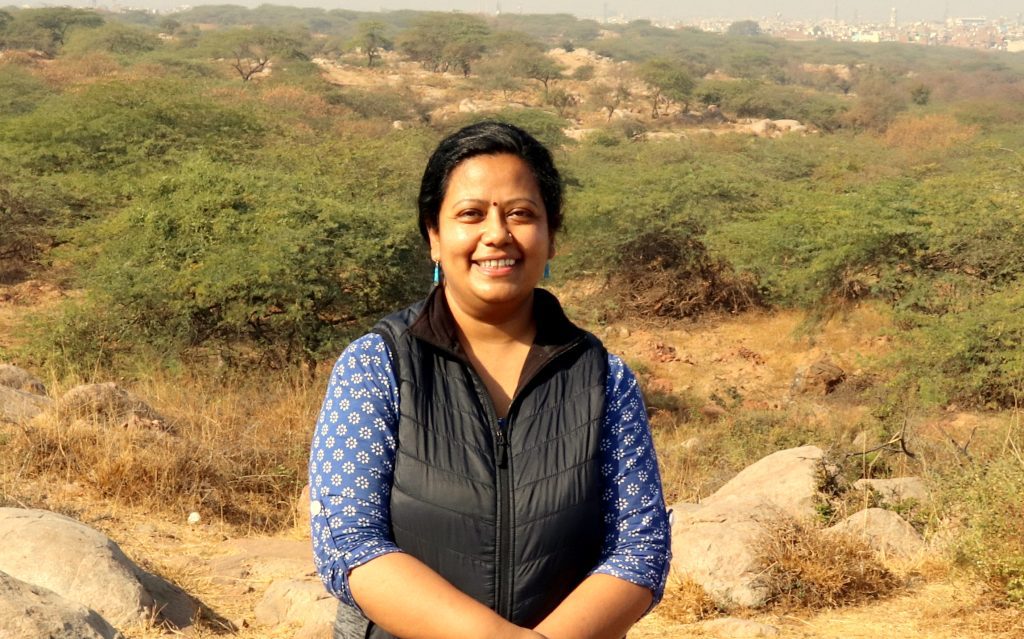
RECOGNIZED AT STATE AND NATIONAL LEVEL
Her leadership earned her the Karmashree Award 2025 from the Government of Assam for flood relief and road-risk mitigation. Now, the Eco Warrior Award for Wildlife Conservation 2025 places her work on a national stage, applauding her scientific skill and ground-level action.
A CAREER OF KNOWLEDGE AND FIELDWORK
Dr. Ghosh topped the Indian Forest Service 2000 batch, bringing both academic expertise and field experience to her role. She holds:
- A Master’s degree in Wildlife Science
- A Ph.D. on remote-sensing applications for tiger habitat modeling
- Diplomas in environmental law and systems management
Her early assignments in Manas and Kokrajhar built her skills in wildlife management and community collaboration. Today, as Kaziranga’s first woman Field Director, she blends scientific precision with on-ground action to guide one of the world’s most celebrated conservation landscapes.
From leading daring flood rescues to ending rhino poaching and transforming tourism, Dr. Sonali Ghosh’s work stands as a powerful example of how knowledge, technology, and community partnership can protect India’s most iconic wildlife sanctuary.

